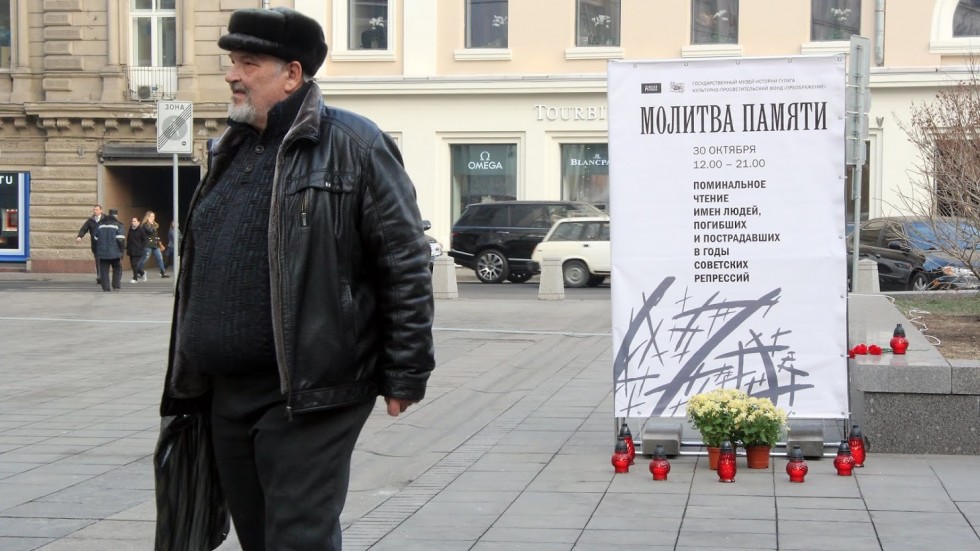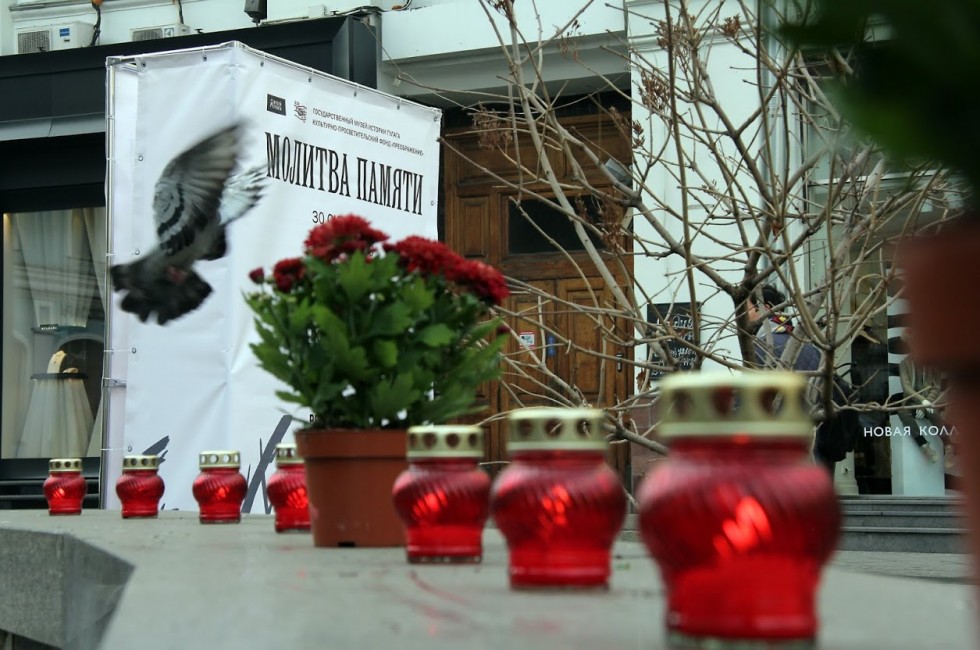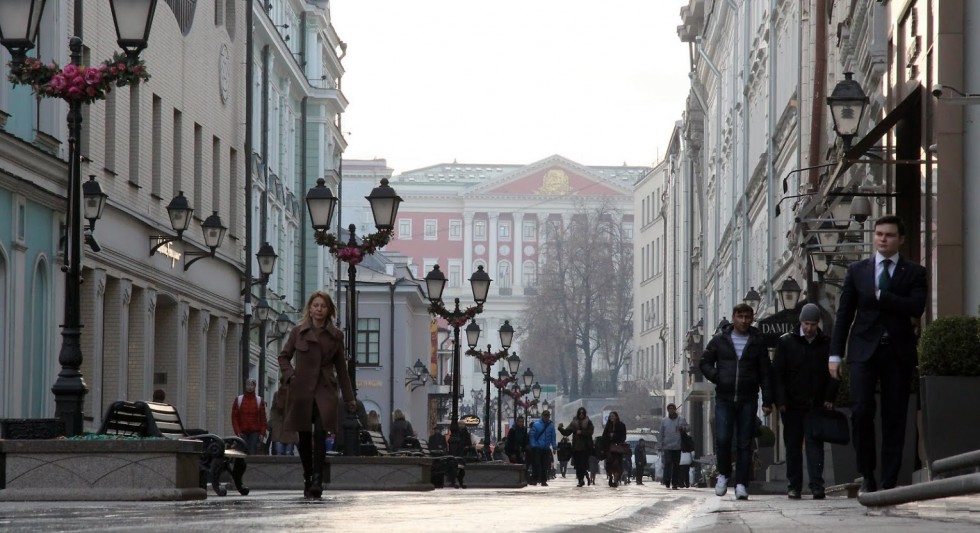Memorial Day
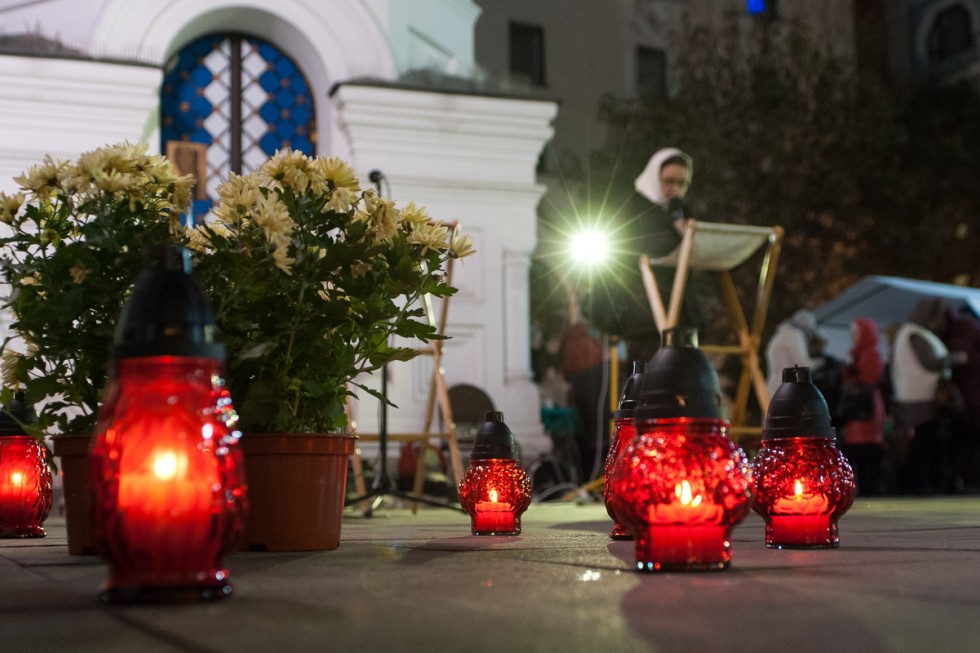
Prayer of commemoration on Petrovka Street
Dmitry Gasak, Senior Vice-Rector of SFI, recalled that the initiative to establish a Soviet Repression Victims Day had emerged in 1974 in Mordovian and Perm labour camps. The victims were initially commemorated by several unknown political prisoners who held a hunger strike for one or two days refusing to take food delivered by prison guards. Also at that time, a press conference for foreign journalists was held in Andrei Sakharov’s apartment.
“The Bolshevik terror and extermination had a huge impact on our whole country. Perhaps, it is the very scale of the disaster that prevents people from understanding what had happened,” said Dmitry Gasak. “All victims were thrown into this mass grave together.” Local execution lists featured factory workers as well as the Bolshoi Theatre performers, plumbers as well as NKVD officers and students as well as pensioners. Those people belonged to many ethnic groups: Russians, Ukrainians, Jews, Tajiks, the Chinese.
“The anthropological disaster is not over yet. Its traces are everywhere: in relationships between people, on our faces, in our actions and thoughts. We are barely able to live together and so we struggle with joining our efforts for doing something good and useful for all,” added Dmitry Gasak. “The civil war in our country started in the early 20th century and never ended peacefully. Who will dare to take responsibility for the spiritual act of reconciliation? How can we resolve the profound contradiction engrained in people’s minds? It is a historical challenge for those of living today.”
On that day, Soviet terror victims were also remembered in prayer at other Moscow locations: on Pokrovka and Petrovka Streets, at Vagankovo Cemetery and the Butovo firing range as well as in the towns of Istra and Kommunarka located within the Moscow region. On the previous day, the ‘Memorial’ Society held a recital of names at the Solovetsky stone on Lubyanka Street. On 30 October, similar commemorative events took place in St Petersburg, Ekaterinburg, Tver, Voronezh, Arkhangelsk, Pskov, Tula and other cities and towns across Russia where lawless courts issued illegal sentences, and at the sites associated with classified or anonymous mass graves. The commemorative prayer was an initiative by the Transfiguration Brotherhood, the Synodal Department for Church-Society Relations of the Russian Orthodox Church, Transfiguration Centre for Culture and Education and the State Museum of GULAG History. Passers-by were encouraged to join in the commemorative prayer and name recitals.
On the same day, Fr. Georgy Kochetkov, Rector of SFI, offered up a prayer at Transfiguration Centre for Culture and Education, commemorating all those innocently killed and persecuted in the years of Soviet repressions.
At 9 pm that evening, many people in different cities and towns across Russia lit candles in their homes in remembrance of innocent victims.
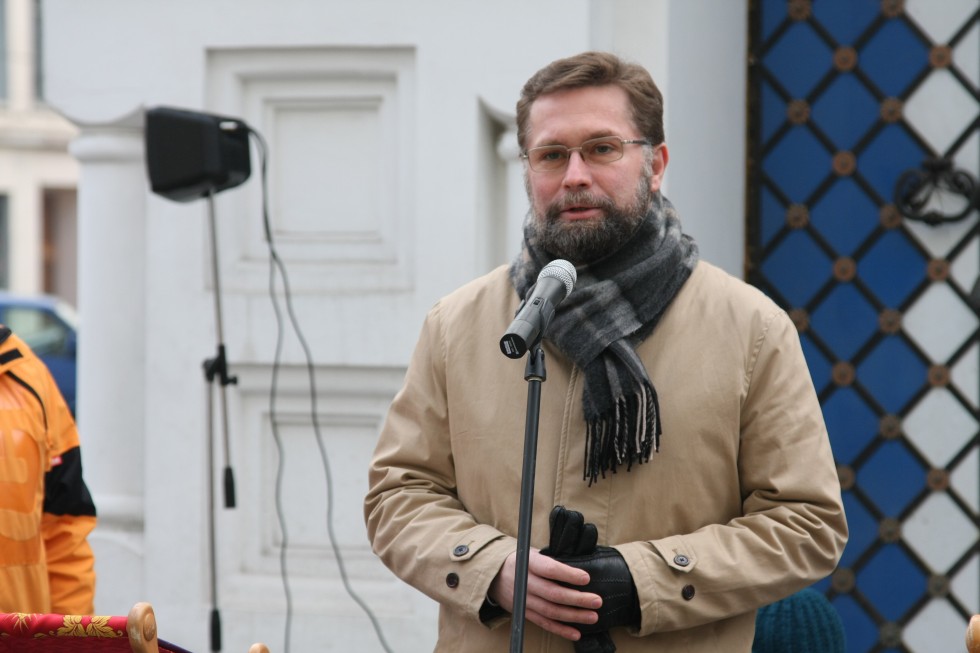
Dmitry Gasak, Senior Vice-Rector of SFI. Prayer on Petrovka Street
“The anthropological disaster is not over yet. Its traces are everywhere: in relationships between people, on our faces, in our actions and thoughts. We are barely able to live together and so we struggle with joining our efforts for doing something good and useful for all,” added Dmitry Gasak. “The civil war in our country started in the early 20th century and never ended peacefully. Who will dare to take responsibility for the spiritual act of reconciliation? How can we resolve the profound contradiction engrained in people’s minds? It is a historical challenge for those of living today.”
On that day, Soviet terror victims were also remembered in prayer at other Moscow locations: on Pokrovka and Petrovka Streets, at Vagankovo Cemetery and the Butovo firing range as well as in the towns of Istra and Kommunarka located within the Moscow region. On the previous day, the ‘Memorial’ Society held a recital of names at the Solovetsky stone on Lubyanka Street. On 30 October, similar commemorative events took place in St Petersburg, Ekaterinburg, Tver, Voronezh, Arkhangelsk, Pskov, Tula and other cities and towns across Russia where lawless courts issued illegal sentences, and at the sites associated with classified or anonymous mass graves. The commemorative prayer was an initiative by the Transfiguration Brotherhood, the Synodal Department for Church-Society Relations of the Russian Orthodox Church, Transfiguration Centre for Culture and Education and the State Museum of GULAG History. Passers-by were encouraged to join in the commemorative prayer and name recitals.
On the same day, Fr. Georgy Kochetkov, Rector of SFI, offered up a prayer at Transfiguration Centre for Culture and Education, commemorating all those innocently killed and persecuted in the years of Soviet repressions.
At 9 pm that evening, many people in different cities and towns across Russia lit candles in their homes in remembrance of innocent victims.
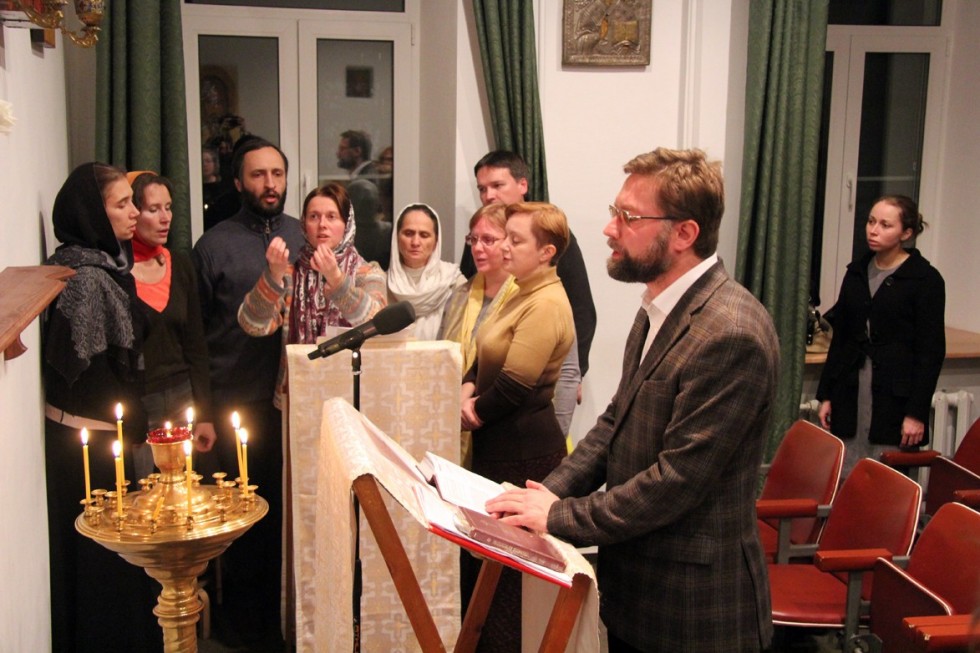
Prayer at St Philaret’s Institute Chapel
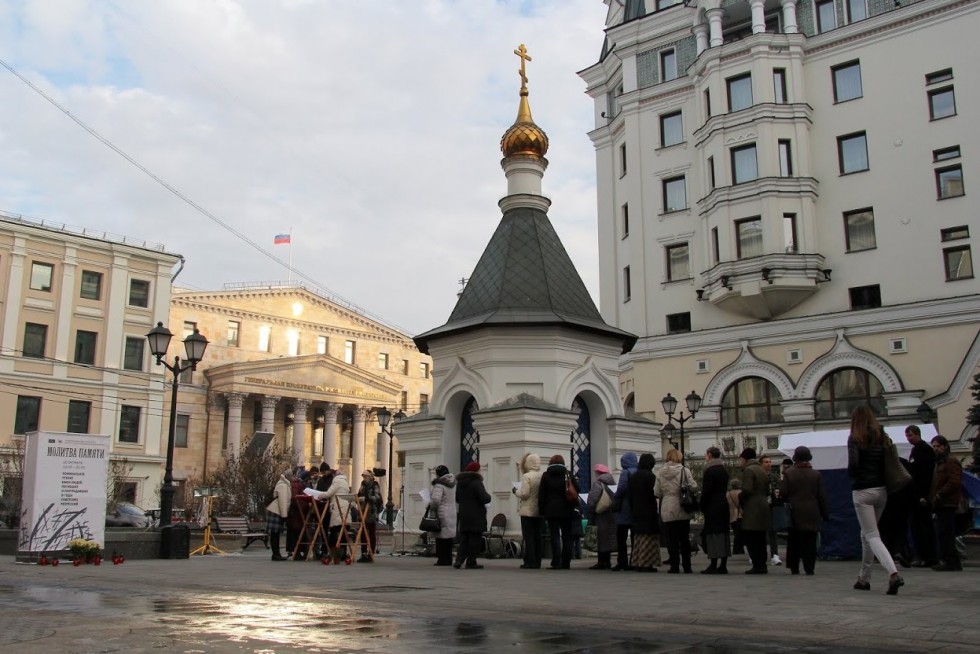
Prayer of commemoration on Petrovka Street, in front of the State Museum of GULAG History
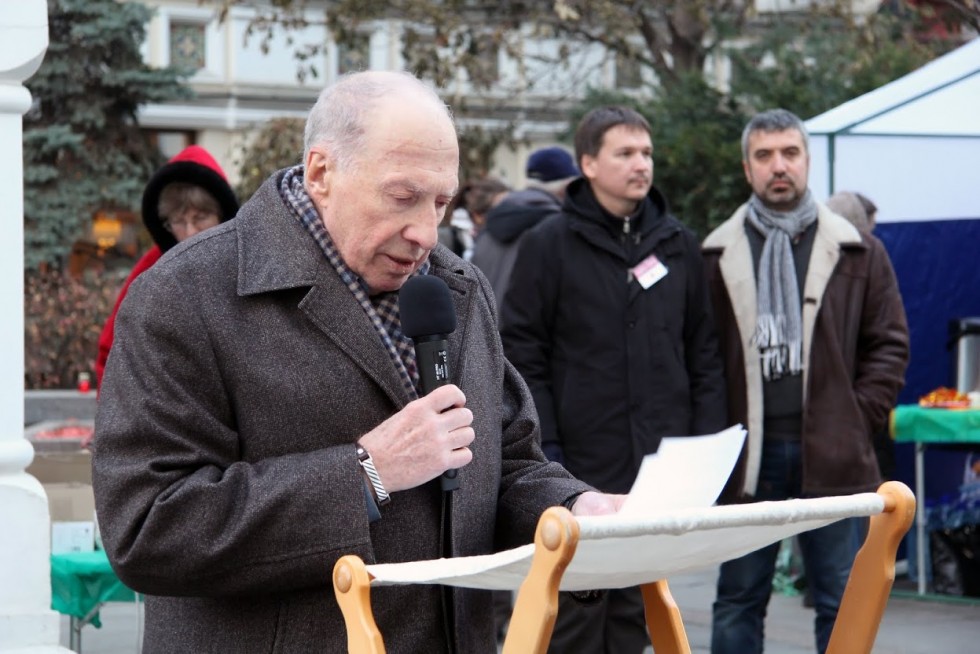
Sergey Yursky, an outstanding Soviet/Russian theatre and film actor, theatre director and screenwriter, took part in the commemorative prayer on Petrovka Street
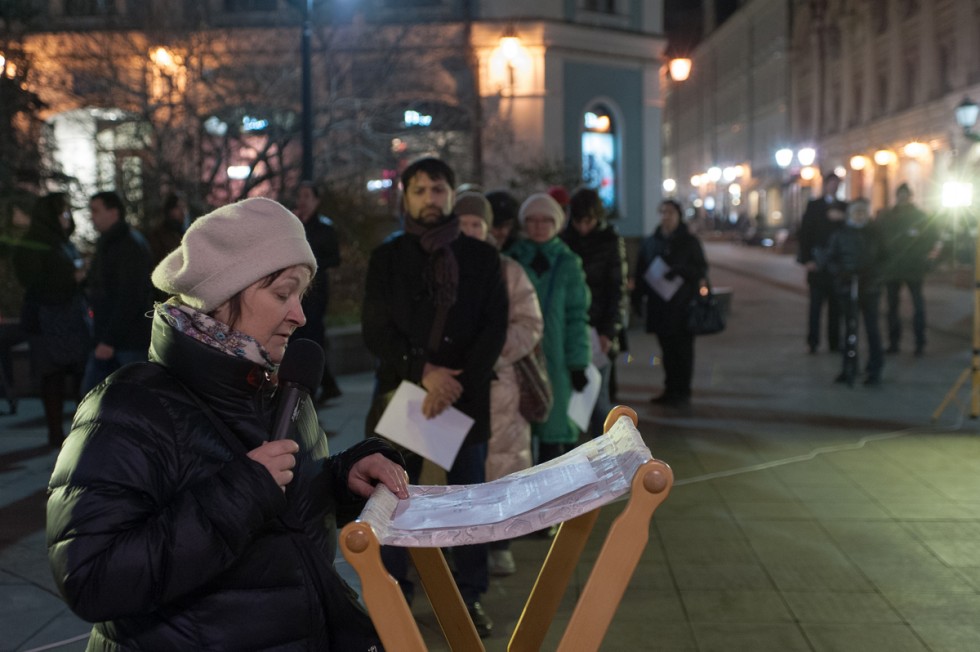
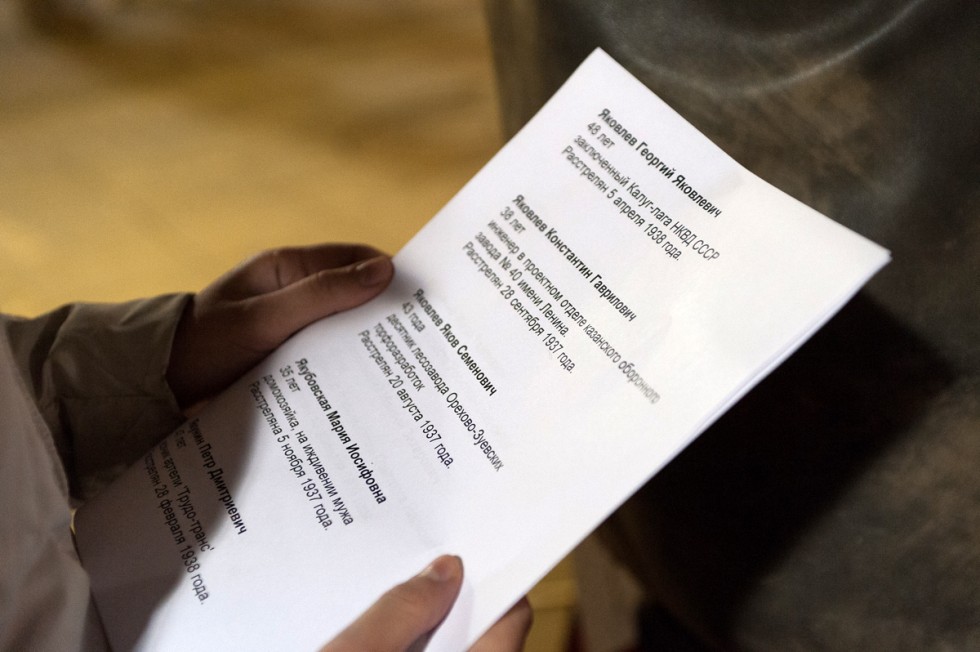
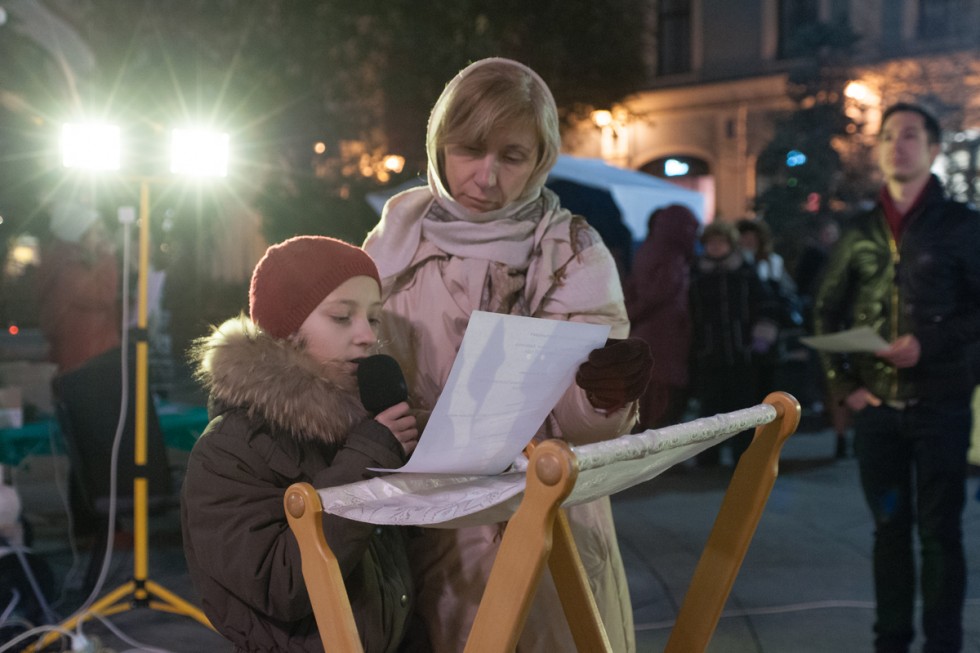
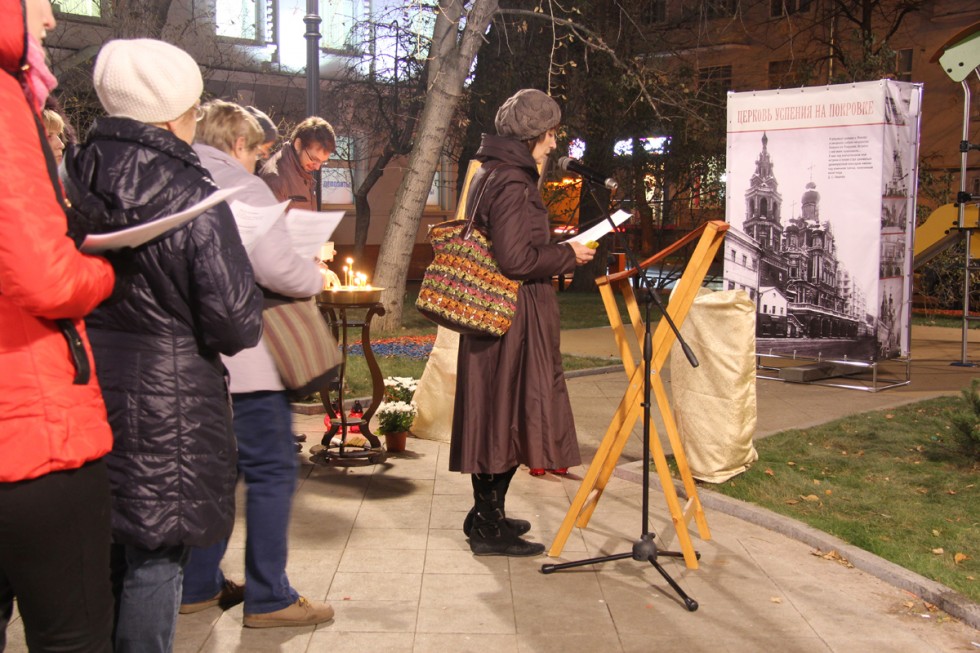
Commemorative prayer on Pokrovka Street, at the site of the demolished Dormition of the Theotokos church
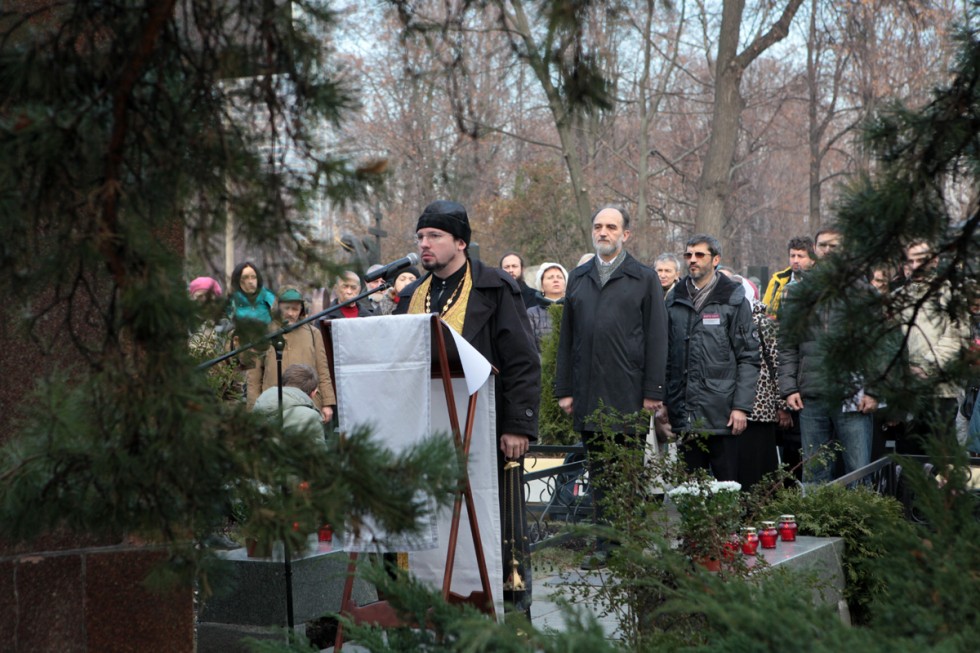
Commemorative prayer at Vagankovo Cemetery
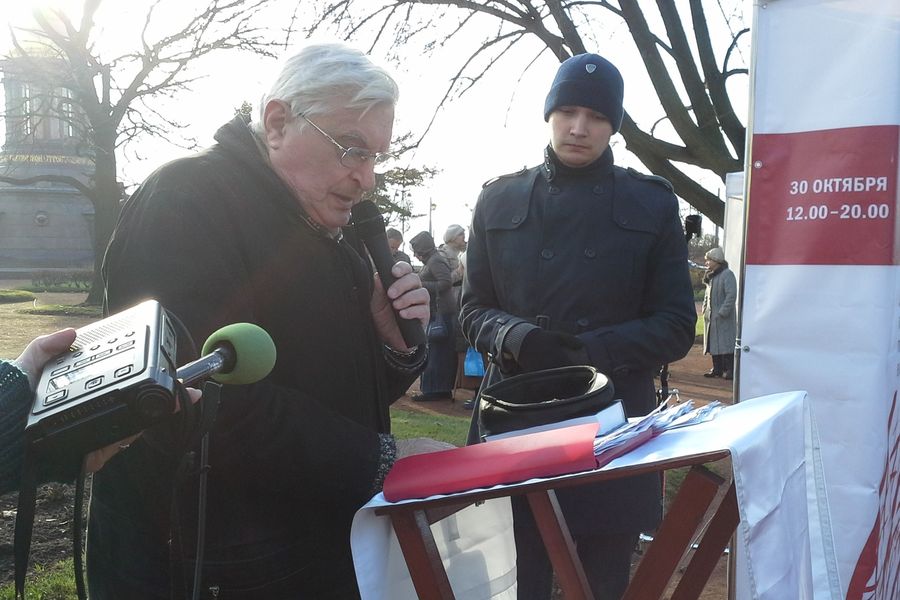
Oleg Basilashvili, a well-known Soviet/Russian film and theatre actor, reciting names of political repression victims Commemorative prayer in St Petersburg
